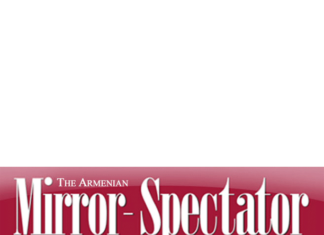By Edmond Y. Azadian
It seems to be the era of populism in American politics. Voters are tired of conventional politicians and are looking for people who label themselves as outsiders, who can breathe fresh air into the political system. This mood is apparent in the meteoric success of Donald Trump in the Republican camp and Sen. Bernie Sanders in the Democratic camp. Both candidates infuse raw and elemental energy into the political narrative.
The Republican debate anointed Donald Trump as the front- runner of his party and the Democratic debate enhanced Sanders’ image, almost undermining frontrunner Hillary Clinton’s foothold.
The Democratic debate mostly focused on Clinton and Sanders, leaving the rest of the contenders in the shadows — Lincoln Chafee, Martin O’Malley and Jim Webb. (Webb just announced this week that he is quitting the primary, though he is leaving open the possibility of running as an independent.) Another candidate, Harvard law professor Lawrence Lessig, is trying to get enough momentum to participate in the debates.
The Republican debate was more crowded and at times tense, although the moderator, Jake Tapper, was highly professional and courteous. During the Democratic debate, moderator Anderson Cooper allowed himself some abrasive questions, but all in all, there was an element of camaraderie among the candidates.
Bernie Sanders raised his profile tremendously by continually harping on the nation’s income distribution disparity. He was after the top 1 percent of the population, who do not incur their fair share of the tax burden. That line of thinking has won tremendous popularity and boosted his campaign financing, which does not depend on a few donors with deep pockets; rather he attracts many donors who make small donations.









